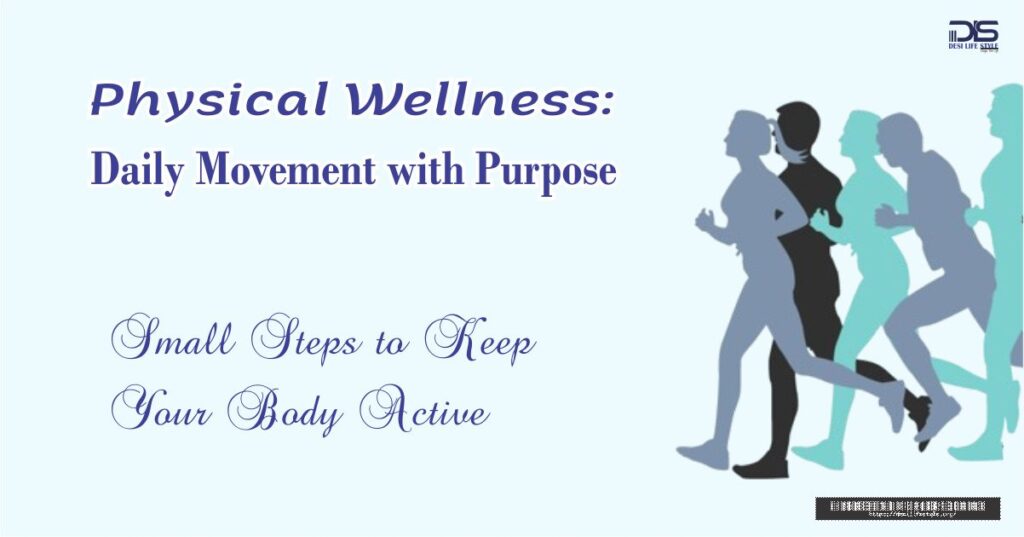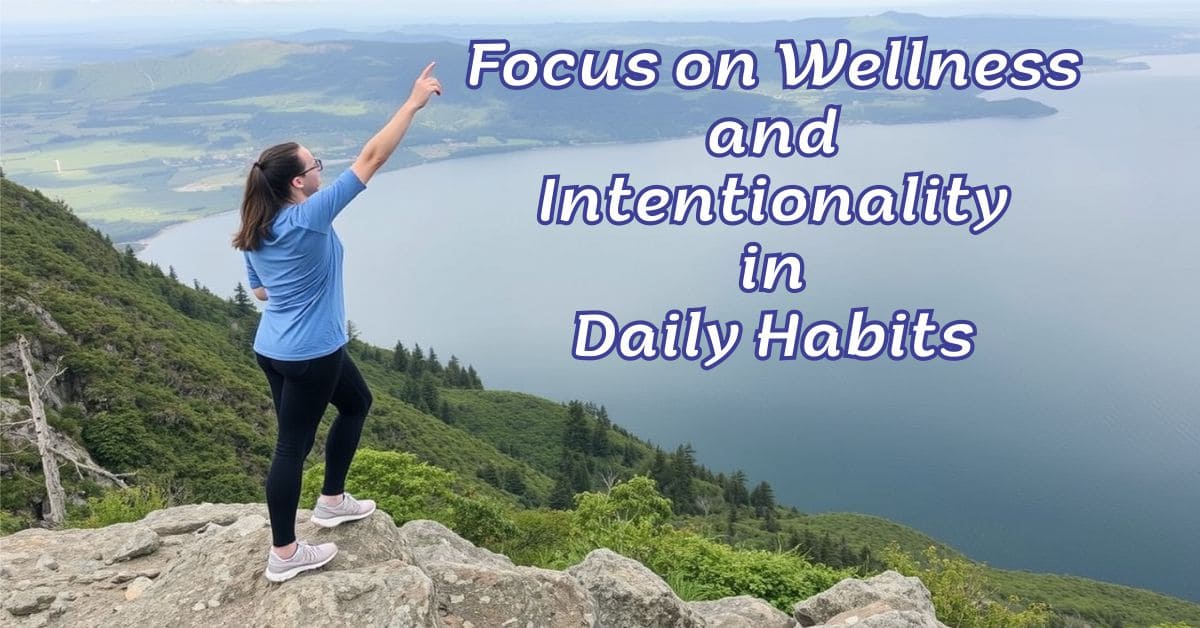Learn how to focus on wellness and intentionality in daily habits with our comprehensive guide. Discover practical strategies for enhancing physical and mental health, building mindful routines, and living a more purposeful life. Start your journey towards a balanced and fulfilling lifestyle today!
Introduction: The Importance of Wellness and Intentionality
When was the last time you slowed down and truly thought about your day-to-day habits? In our fast-paced world, we often overlook the importance of focusing on wellness and intentionality in our lives. It’s easy to get caught up in the rush of work, family, and obligations, but taking the time to be deliberate about your actions can be a game-changer for your overall well-being.
In this article, we’ll explore why focusing on wellness and intentionality is crucial, how to weave them into your daily routine, and the transformative power they hold in improving your physical, emotional, and mental health.
Why Wellness and Intentionality Are the Foundations of a Balanced Life
Focusing on wellness and intentionality is more than just a trendy buzzword; it’s a philosophy for living a more balanced and fulfilled life. But what does it mean, exactly?
- Wellness refers to your overall health, including physical, emotional, and mental well-being.
- Intentionality is the conscious decision to act with purpose and mindfulness.
When you focus on both of these aspects, you’re not just going through the motions. Instead, you make choices that nourish your body, mind, and soul. Living with wellness and intentionality can help you feel more connected, grounded, and present in each moment.
How to Incorporate Intentionality into Your Daily Habits
Building intentionality into daily habits can seem daunting at first, but small, consistent efforts will yield powerful results over time. Let’s start with something simple: your morning routine.
A Mindful Morning Routine
Instead of hitting the snooze button, try waking up with purpose. Take a few minutes every morning to set your intentions for the day. This can be as simple as practicing mindfulness, focusing on positive affirmations, or spending time journaling about what you hope to accomplish. By starting your day with wellness and intentionality, you create a foundation for success.
Physical Wellness: Daily Movement with Purpose

We all know that movement is key to maintaining good health, but intentional movement can elevate this even further. Instead of forcing yourself to hit the gym for an hour-long workout, think about how you can integrate wellness and intentionality into your physical activities.
Small Steps to Keep Your Body Active
Simple, mindful exercises like yoga, stretching, or even a brisk walk can do wonders for your body. The key is to be present in the movement, focusing on how it makes you feel, and appreciating the energy it brings. Daily habits like taking the stairs or standing up during work breaks can make a big difference.
Emotional Wellness: Intentional Habits for Mental Clarity
Wellness and intentionality aren’t just about the physical body—they’re essential for mental and emotional health, too. Our emotional well-being often takes a backseat, but by cultivating mindful practices, we can create emotional resilience.
Practicing Gratitude and Journaling
One of the easiest ways to boost emotional wellness is to practice gratitude. Take a few minutes every day to consider what you are grateful for. Journaling these thoughts can help reinforce positivity and reduce stress, keeping you grounded in the present moment.
Nourishing Your Body: Eating with Wellness and Intentionality
What we eat plays a major role in how we feel, both physically and mentally. Eating with wellness and intentionality means being mindful of your food choices and how they fuel your body.
Mindful Eating Practices
Slow down and savor each bite. Pay attention to the flavors, textures, and aromas of your meals. Not only will you enjoy your food more, but you’ll also be more in tune with your body’s hunger and fullness cues, which helps prevent overeating and supports healthier habits.
Building Strong Relationships with Intentionality
Our relationships—whether personal or professional—benefit from intentionality as well. Taking the time to engage in meaningful conversations and truly listen to others can strengthen your connections.
Listening and Meaningful Conversations
When interacting with others, practice active listening. Be fully present, without distractions, and engage in conversations that matter. This creates deeper bonds and contributes to emotional wellness.
The Power of Digital Detoxing

In today’s tech-saturated world, it’s easy to get lost in screens, whether it’s your phone, computer, or TV. An intentional digital detox can work wonders for your mental clarity and emotional wellness.
Why Unplugging Leads to Wellness
Try setting boundaries around your screen time. Disconnect from social media and spend that time engaging in activities that nourish you, such as reading, meditating, or going outside. This helps reduce stress, improves sleep, and encourages more mindful interactions with the world around you.
Take a break from the digital world and discover the benefits of a digital detox.
Sleep Hygiene: Resting with Intentionality
Never underestimate the power of sleep! Practicing intentionality around your sleep habits can drastically improve your overall wellness.
Creating a Relaxing Sleep Routine
Design a pre-sleep routine that prepares your body and mind for rest. This could include dimming the lights, reading a book, or meditating before bed. Make your bedroom a sanctuary for relaxation, free from distractions, to support deep, restorative sleep.
How to Set Intentional Wellness Goals
When it comes to personal growth, setting wellness and intentionality goals can help you stay on track. Start with small, realistic objectives, and work your way up.
Short-Term and Long-Term Goal Setting
Short-term goals, like drinking more water or getting 15 minutes of exercise a day, are achievable and provide immediate satisfaction. Long-term goals, such as running a marathon or meditating daily for a year, give you something bigger to work towards, keeping you motivated over time.
The Benefits of Intentionality in Self-Care Practices
We often think of self-care as a luxury, but with intentionality, it becomes a necessary part of our wellness routine.
Small Acts of Self-Love
Self-care doesn’t have to be grand. Simple acts like taking a bath, reading a book, or spending time outdoors can replenish your energy and improve your overall mood.
Mindful Meditation: A Daily Practice for Wellness
Meditation is one of the most powerful tools for achieving wellness and intentionality. The best part? It doesn’t require hours of your day.
Starting with Just Five Minutes a Day
Start small by dedicating just five minutes each day to mindful meditation. Focus on your breath, quiet your mind, and notice how this small habit can reduce stress, improve focus, and increase overall happiness.
Conclusion: Embracing Wellness and Intentionality in Every Aspect of Life
At the heart of wellness and intentionality is the idea of being present and purposeful in every aspect of life. Whether it’s through mindful eating, meaningful conversations, or a restful night’s sleep, incorporating intentionality into your daily habits can lead to a more balanced, fulfilling life. It’s not about perfection—it’s about making small, mindful changes that, over time, create lasting well-being.
FAQs
- How can I be more intentional with my time?
Start by identifying your priorities and aligning your actions with them. Focus on what truly matters and minimize distractions. - What are simple daily habits that promote wellness?
Practicing mindfulness, regular physical activity, and gratitude are some simple habits that can make a big impact on your wellness. - Can intentionality really help reduce stress?
Absolutely! Intentionality helps you slow down and focus on the present, reducing anxiety about the future or regrets about the past. - How does focusing on wellness improve relationships?
When you prioritize wellness, you have more energy and patience to invest in meaningful connections, which strengthens relationships. - What are the first steps to living more intentionally?
Begin by becoming more aware of your habits and daily routines. Start small, with one or two mindful practices, and build from there.

